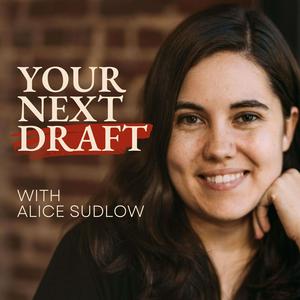How Great First Lines Make Readers Pay Attention (with Abigail K. Perry)
It is a truth universally acknowledged that a fiction writer in possession of a brilliant story must craft a captivating opening line.No pressure, right?Your opening line is your story’s first impression. Agents, editors, and even readers decide fast whether they want to keep reading or drop the book altogether. And yes, they can make that judgment in as little as the very first sentence.So your opening line is doing some heavy, heavy lifting.But what, exactly, do great first lines do?What sets an unputdownable first sentence apart from a forgettable dud? How do they capture readers—and agents—in a matter of seconds?I turned to Abigail K. Perry, editor, book coach, and expert in opening chapters, to find out. You’ll hear:What agents are looking for in the first line of a manuscript (and what makes them stop reading)What makes captivating first lines actually workHow to find the hooks of your story—what only your story can deliverHow to lighten the pressure to get the first line rightAnd more!If you’ve ever worried over the beginning of your book—if you’ve ever written and discarded a dozen different versions of your first sentence, and you’re still stressed that that first line won’t land—well, I think you’re going to love what Abigail has to share.Links mentioned in the episode:Want more first chapter wisdom? Check out the first part of my conversation with Abigail: How Great First Chapters Make Readers Care »Check out a few of Abigail’s “First Chapter Deep Dive” episodes on Lit Match:The Hunger Games by Suzanne CollinsCatching Fire by Suzanne CollinsMockingjay by Suzanne CollinsRemarkably Bright Creatures by Shelby Van PeltSend me a Text Message!Want my support in your revision?In Story Clarity, we’ll work one-on-one to sharpen your story’s structure and craft a revision plan that works. If you’re ready for thoughtful, personalized feedback from an editor who gets what you’re trying to do, I’d love to hear what you’re working on.Get started by telling me about your story here. Support the showRate, Review, & Follow on Apple Podcasts "I love Alice and Your Next Draft." If that sounds like you, please consider rating and reviewing my show! This helps me support more writers through the mess—and joy—of the editing process. Click here, scroll to the bottom, tap the stars to rate, and select “Write a Review.” Then be sure to let me know what you loved most about the episode! Loving the show? Show your support with a monthly contribution »


